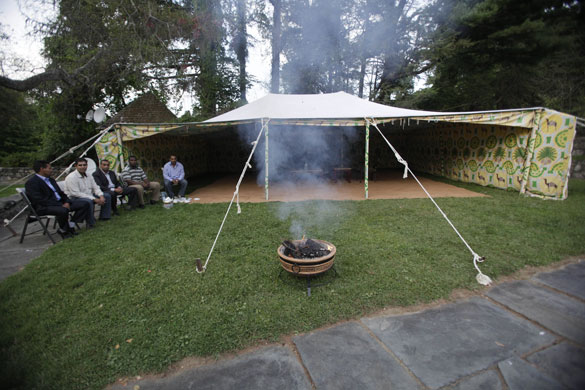Posted on 03/04/2011 6:05:00 PM PST by SunkenCiv
The country has been a rich cross-cultural legacy. In the accompanying photo, an image of ancient Cyrene. Founded by the Greeks in the 4th Century BC, Cyrene became a World Heritage Site in 1982. And for good reason: One of the main capitals of the Hellenistic era, it retained its greatness throughout the Roman era until it suffered a devastating earthquake 365 AD.
(Excerpt) Read more at cbsnews.com ...
|
· join list or digest · view topics · view or post blog · bookmark · post a topic · subscribe · |
|||
Antiquity Journal & archive Archaeologica Archaeology Archaeology Channel BAR Bronze Age Forum Discover Dogpile Eurekalert LiveScience Mirabilis.ca Nat Geographic PhysOrg Science Daily Science News Texas AM Yahoo Excerpt, or Link only? |
|
||
|
· Science topic · science keyword · Books/Literature topic · pages keyword · |
|||

Leptis Magna,(Arabic: لَبْدَة [1]) also known as Lectis Magna (or Lepcis Magna as it is sometimes spelled), also called Lpqy, Neapolis, or Lebda to modern-day residents of Libya, was a prominent city of the Roman Empire. Its ruins are located in Al Khums, Libya, 130 km east of Tripoli, on the coast where the Wadi Lebda meets the sea. The site is one of the most spectacular and unspoiled Roman ruins in the Mediterranean.
I was there when:

Leptis Magna was the home town of the Roman emperor Septimius Severus, emperor from 193 to 211 and founder of a dynasty which lasted until 235.

Lucius Septimius Severus restored stability to the Roman empire after the tumultuous reign of the emperor Commodus and the civil wars that erupted in the wake of Commodus' murder. However, by giving greater pay and benefits to soldiers and annexing the troublesome lands of northern Mesopotamia into the Roman empire, Septimius Severus brought increasing financial and military burdens to Rome's government. His prudent administration allowed these burdens to be met during his eighteen years on the throne, but his reign was not entirely sunny. The bloodiness with which Severus gained and maintained control of the empire tarnished his generally positive reputation.
His sons Caracalla and Geta hated each other--he left the throne to both of them, but about a year later Caracalla had his brother killed right in front of their mother.
Septimius Severus made an effort to conquer all of Scotland for the Roman Empire, but then died at York. Constantius I, the father of Constantine the Great, also died at York.

Caracalla

Disclaimer: Opinions posted on Free Republic are those of the individual posters and do not necessarily represent the opinion of Free Republic or its management. All materials posted herein are protected by copyright law and the exemption for fair use of copyrighted works.